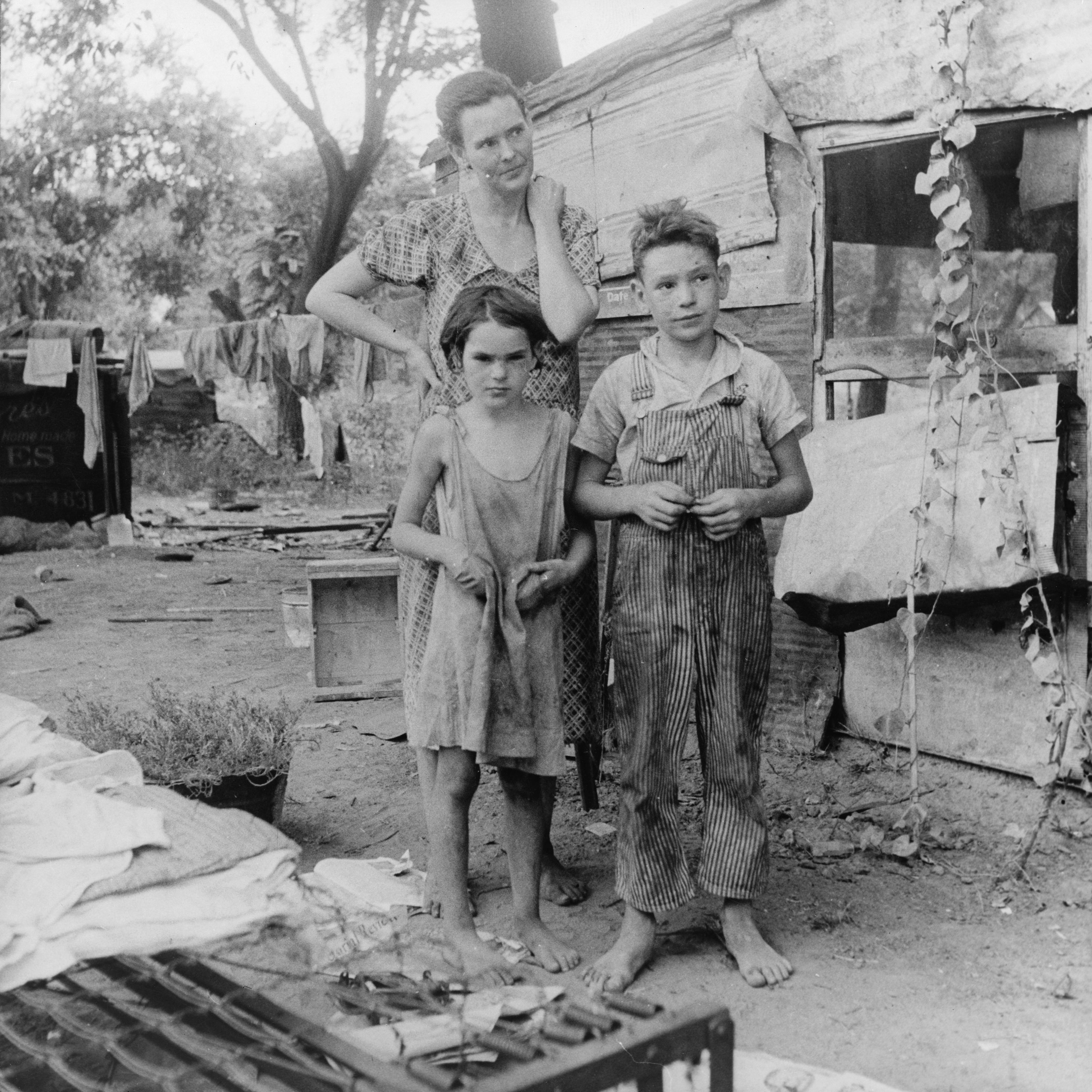Advent & Art: Using Art to Abide in Christ Throughout the Christmas Seasonનમૂનો

Two Shirts
We all know Christmas is a time for giving—giving presents to those we love, taking time to travel to visit relatives, or showing hospitality to friends and family.
For Advent, the theme of giving is not a mere sentiment or duty we employ during this time of year; it's a reflection of the Incarnation, of God living among His creation and taking upon Himself the poor, the meek, and the suffering of the world. As we know, His entrance into the world was not a royal affair; rather, He choose Mary and Joseph, a couple so poor that they could afford only a poor man's sacrifice at the temple (Luke 2:22-24). This act of being born into poverty was not a backdoor entrance into creation or some clever means to throw off people's messianic assumptions. Instead, God embraced poverty because it said something about His kingdom. The life of Christ was a testimony of kingdom values and principles: freedom, sacrifice, and mercy instead of wealth, power, or status.
In our third reading from Advent, we are dropped into the middle of John's scathing rebuttal of his audience, calling them a "brood of vipers" and challenging their ancestral assumptions tied to Abraham. What comes next could be best illustrated from a comic strip showing a person shouting toward heaven, "God! If you're up there, tell us what we should do!"
From above comes a voice: "Feed the hungry, house the homeless, establish justice."
The person looks alarmed. "Just testing," he sheepishly responds.
"Me too," replies God.
Throughout the Bible, God's demands from His people are clear: act with mercy and justice toward those who don't have a voice, who lack power and persuasion. This is a primary signpost of God's kingdom. That's why John's answer to the crowd's question of how they should respond to his call of repentance was this: "Anyone who has two shirts should share with the one who has none, and anyone who has food should do the same." (Luke 3:11). It's not simply a command to follow during Advent, but part of our everyday walk with God.
If there was someone whose art exhibited the struggles and despair felt by those within the margins, that person was Dorothea Lange, a photojournalist during the early and mid-twentieth century. She's best known for her work with the capturing the real-life rural poverty experienced by sharecroppers and migrant laborers of the Great Depression era. In her image titled "Poor Mother and Children," Lange captures the resilience and nobility of a mother and her children as they struggle through deprivation and poverty during the 1920s. The human worth of Lange's subjects transcends their conditions. Her photographs brought the suffering of the poor to public attention and sometimes prompted government relief to rural populations.
Sit with the uncomfortable reality seen in this picture. Take time to read Zechariah 7:9-10 and Matthew 26:31-46. These verses instruct us how we should respond to the foreigners and poor among us. Do you see those around you with the compassionate eye of God and pursue justice on their behalf? If you were in the photographed mother's place, what would you need most? How can you supply that need for someone during the Advent season?

શાસ્ત્ર
About this Plan

"All is calm. All is bright." This busy time of year can feel anything but calm or bright. Yet, the season of Advent calls us to stay alert to the peace and light Christ brought in His birth and His eventual return. To help us sharpen our gaze, we will incorporate artwork from the Abide Bible alongside Advent Scripture verses to prepare our hearts for Jesus' arrival.
More









